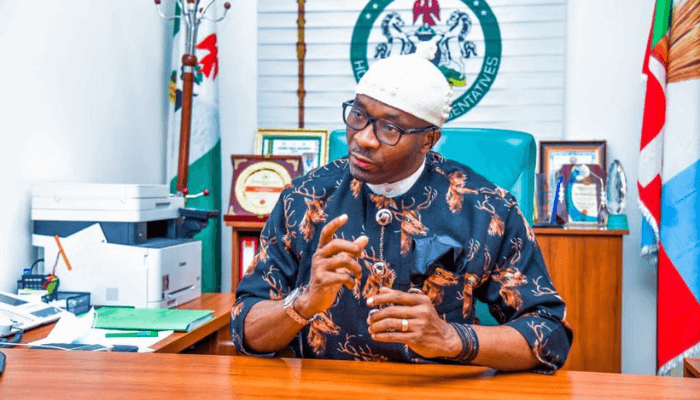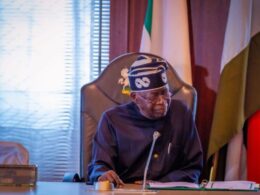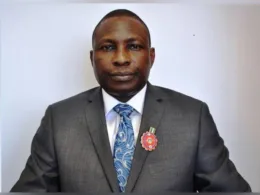Benjamin Kalu stated that Nigeria’s development goals are aligned with the continent’s broader growth initiatives and highlighted President Bola Tinubu’s administration’s efforts to implement the agenda’s objectives across key themes such as economic diversification, youth empowerment, and good governance.
Abuja, Nigeria – The Deputy Speaker of the House of Representatives, Benjamin Kalu, has called on the Nigerian government to intentionally incorporate the African Union (AU) Agenda 2063 into the country’s national development strategy.
Kalu made this statement while reading a communiqué at the conclusion of the Pan-African Parliamentary Conference of the African Union held in South Africa. He emphasized that Nigeria, as Africa’s most populous nation and largest economy, could set a precedent for other African countries by integrating the AU Agenda 2063 into its developmental plan.
The AU Agenda 2063 is an ambitious framework that envisions transforming Africa into a global powerhouse, focusing on creating an integrated, prosperous, and peaceful continent driven by its citizens and representing a dynamic force in the global arena. It comprises seven aspirations centered around key areas such as economic growth, social inclusion, sustainable development, and good governance.
Kalu stated that Nigeria’s development goals are aligned with the continent’s broader growth initiatives and highlighted President Bola Tinubu’s administration’s efforts to implement the agenda’s objectives across key themes such as economic diversification, youth empowerment, and good governance.
“As Africa’s most populous nation and largest economy, Nigeria holds a unique position on the continent. Although it has in the past faced multifaceted challenges, including economic volatility, infrastructural deficits, and social inequalities, the future is bright given the focus of the current administration,” Kalu said.
He pointed to the ongoing initiatives to diversify Nigeria’s economy away from its dependency on oil, through investments in agriculture, technology, and renewable energy. By doing so, Kalu explained, Nigeria aims to achieve sustainable economic growth that reflects the aspirations outlined in Agenda 2063.
Kalu also stressed the importance of infrastructure as a cornerstone for economic development and cited Nigeria’s efforts to actively pursue regional connectivity projects, such as the African Continental Free Trade Area (AfCFTA), which aligns with Agenda 2063’s goal of an integrated Africa.
The Deputy Speaker underscored the federal government’s initiatives aimed at empowering Nigeria’s youth through education and job creation, noting that these align with the agenda’s focus on a people-driven development strategy that engages the continent’s largest demographic group.
He further called for a comprehensive review of existing policies by African states to support the continent’s development agenda, advocating for increased investments in critical infrastructure such as transportation, energy, and digital connectivity. Such investments, he noted, will enhance Africa’s competitiveness and facilitate intra-African trade and economic integration.
Highlighting the significance of regional integration, as outlined in Agenda 2063, Kalu urged African leaders to establish frameworks that strengthen partnerships among African nations, fostering trade and economic collaboration to enhance regional stability and growth.
“To remain competitive in a rapidly changing global landscape, Africa must prioritize technological advancement and innovation,” Kalu noted, while also emphasizing the need for policies that support research and development.
He concluded by stating that Nigeria’s efforts at integrating the AU Agenda 2063 blueprint into its national development strategies would not only enhance its own growth trajectory but also contribute significantly to the realization of a prosperous and united Africa.
“The way forward requires a commitment from all stakeholders, including the government, civil society, and the private sector, to work collaboratively towards achieving Agenda 2063’s ambitious goals,” Kalu said. “As Nigeria embarks on this journey, it stands poised to become a beacon of hope and progress within the African continent, leading by example in the pursuit of sustainable development and shared prosperity.”
Kalu emphasized that Nigeria’s proactive alignment with Agenda 2063 is crucial for a prosperous and united Africa. By working together and sharing a common vision, Africa can achieve the transformative change envisioned for 2063 and beyond, ultimately becoming the continent its people aspire to live in.










Join our Channel...